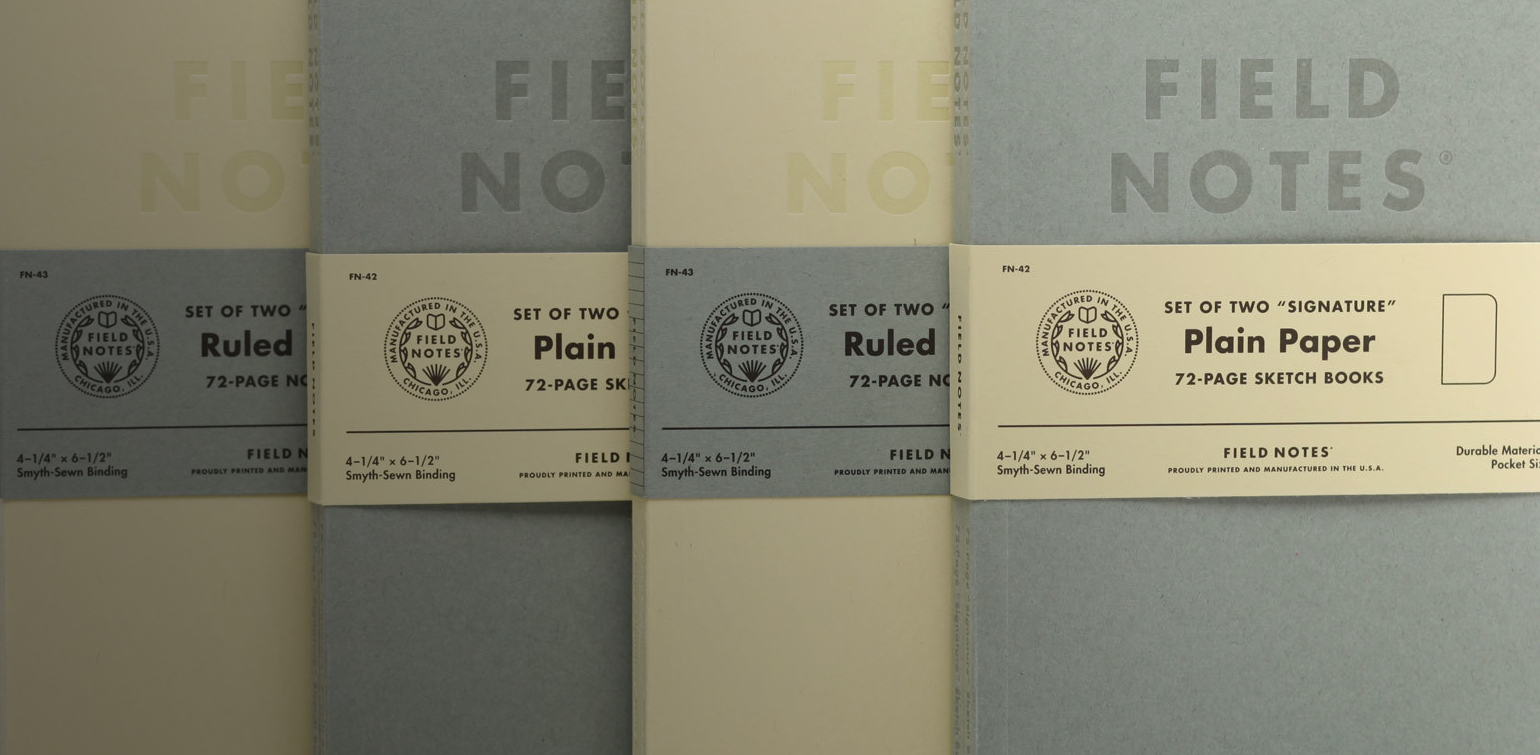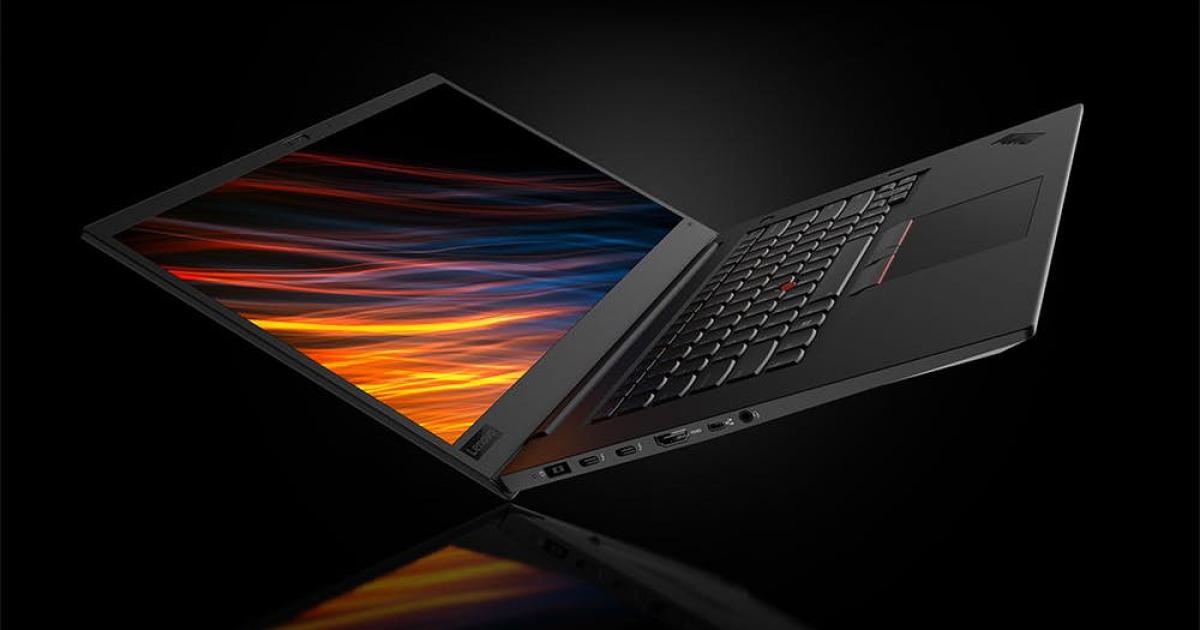Architizer Journal is reader-supported. When you buy through links on our site, we may earn an affiliate commission. Learn more.
Charles Eames was onto something when he said:
“The details are not the details. They make the design.”
When it comes to notebooks, Eames’ wisdom holds true. Designers tend to be picky and uncompromisingly detail-oriented and know that the perfect balance between aesthetics, functionality and comfort really matter in a notebook. While technology has brought us many incredible sketching tools, paper still tends to reign supreme as a repository for some of our best ideas. For those of you who agree that a run-of-the-mill notebook just isn’t going to cut it, here is a handpicked selection of designer-worthy notebooks, sketchbooks and journals.
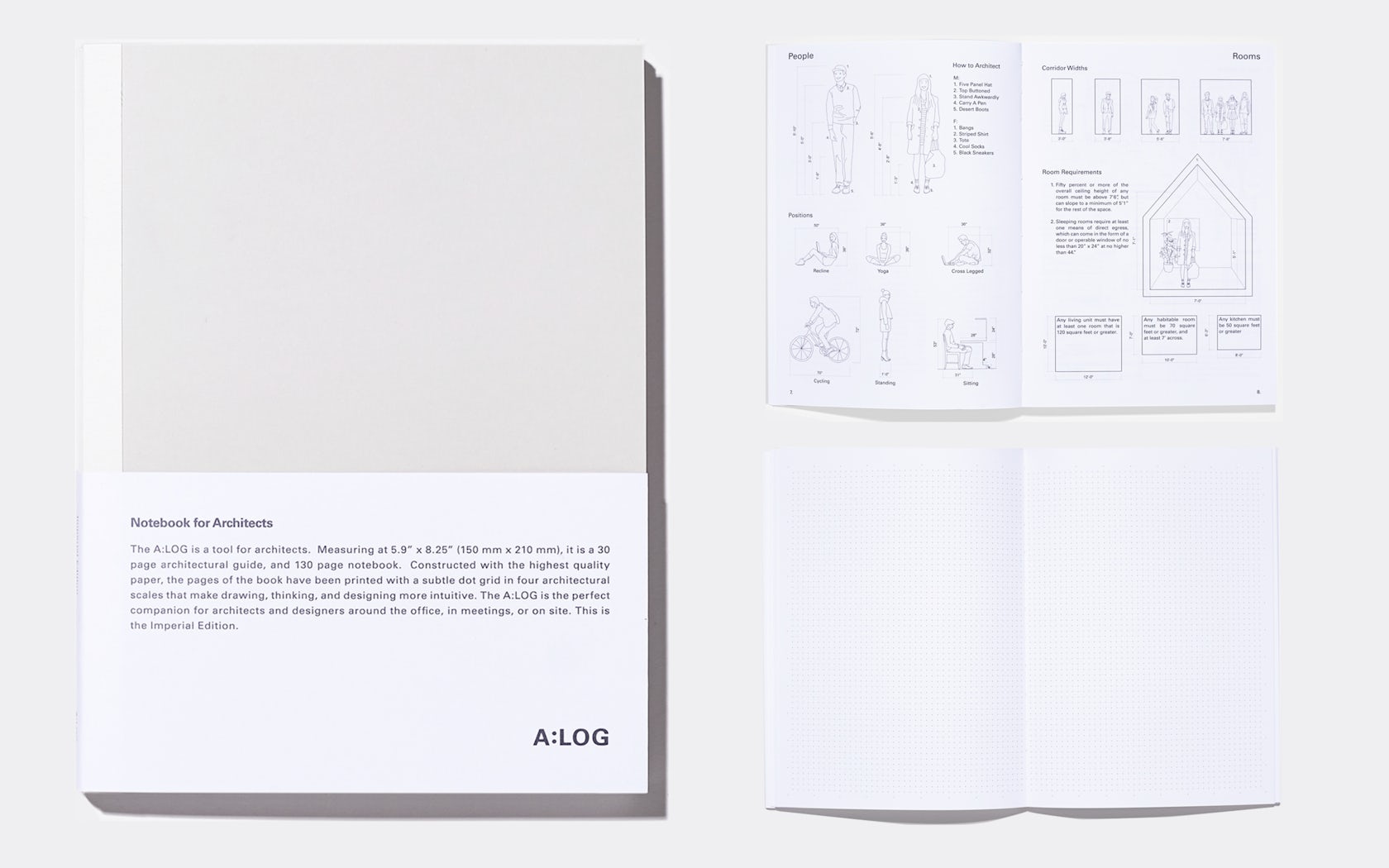
Images via A:LOG
Notebook for Architects by A:LOG
Developed by three graduate students at Columbia’s Graduate School of Architecture, Planning and Preservation (GSAPP), this notebook is specifically designed with architects in mind. The A:LOG came into production after a successful Kickstarter campaign, promoting itself as an essential illustrated reference notebook for architects. Indeed, it is: The notebook’s first 30 pages include essential design information such as building dimensions and other technical guidelines. The rest of the book (which lays flat!) consists of gridded paper at four different scales, with separate editions tailored to either imperial or metric systems.
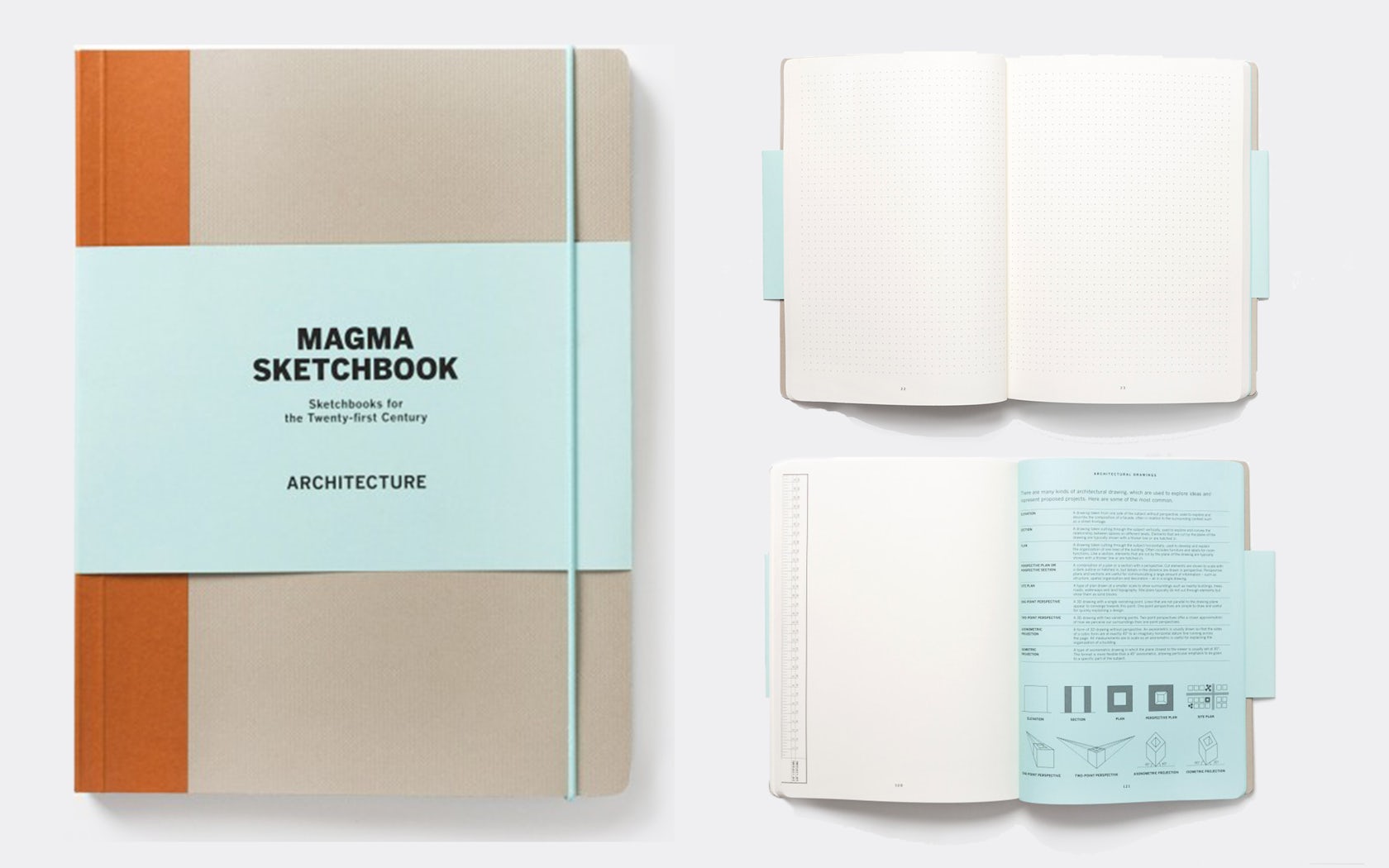
Images via Laurence King
Magma Sketchbook by Magma and Phineas Harper
A notebook for every kind of designer. These colorful softcover notebooks come in four editions: Architecture, Design & Art Direction, Art & Illustration and Fashion. Because we’re partial, the paperback Architecture edition includes 120 blank and gridded pages and printed scale rulers (both metric and imperial) plus 16 pages of useful information on architectural styles, drawing types, circulation, room layouts, furniture and fittings, structural elements and sustainability.
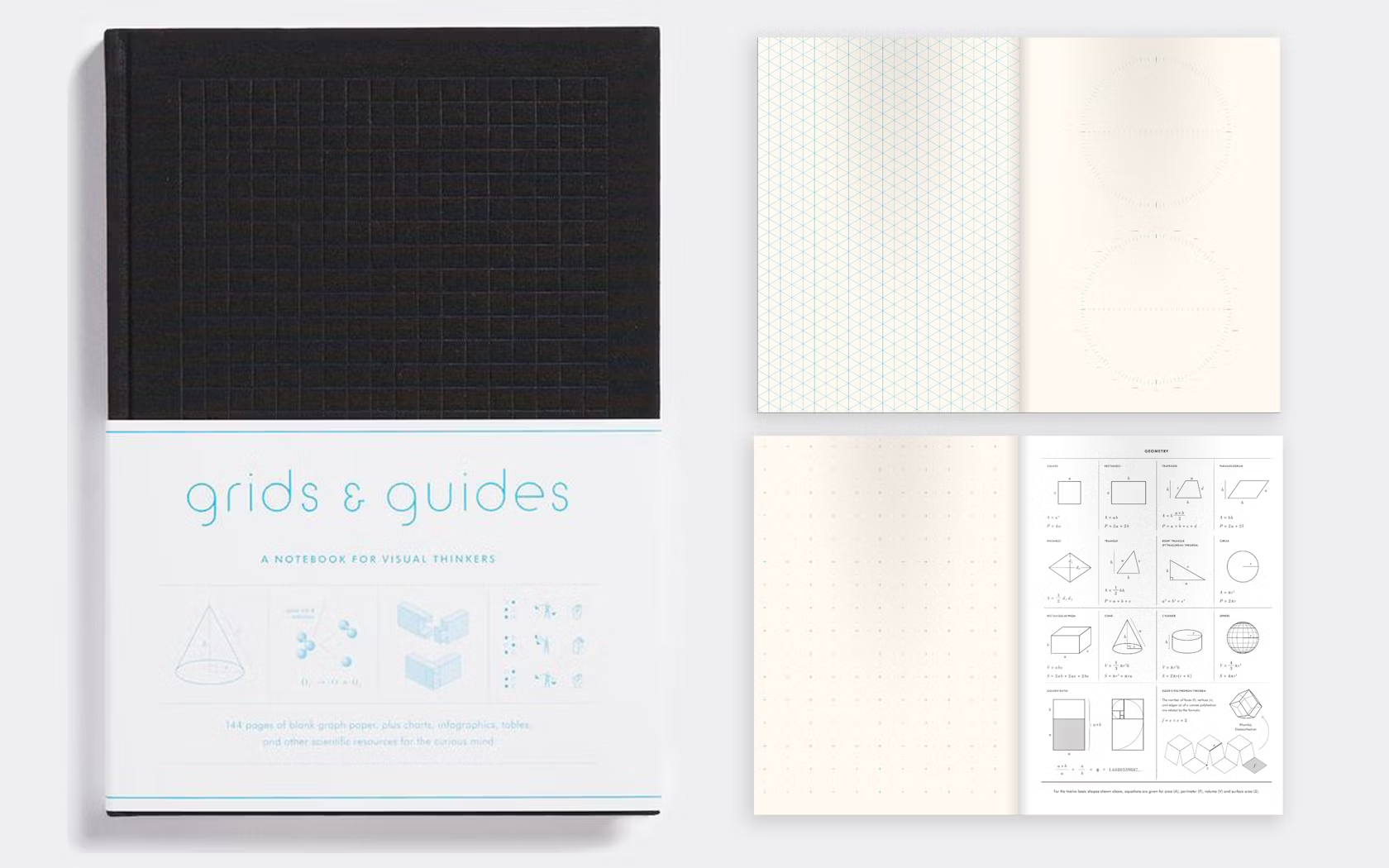
Images via Princeton Architectural Press
Grids & Guides by Princeton Architectural Press
Inspired by vintage lab notebooks, this clothbound hardcover notebook’s 144 pages feature eight designs of various graph papers, interspersed with interesting charts, tables and infographics. Graph papers include numbered lists, cartesian grids, dots, radians and logarithmic graphs. From personal experience, this book succeeds more in its aesthetics than its functionality because every page is a different type of graph. The truth is, most of us work through notebooks on a page-by-page basis, and the Grids & Guides notebook would be better off divided by graph type. Nevertheless, the sturdy volume’s good quality paper, informative inserts and melange of quirky graph papers make it worth your while. Get it in black or red.
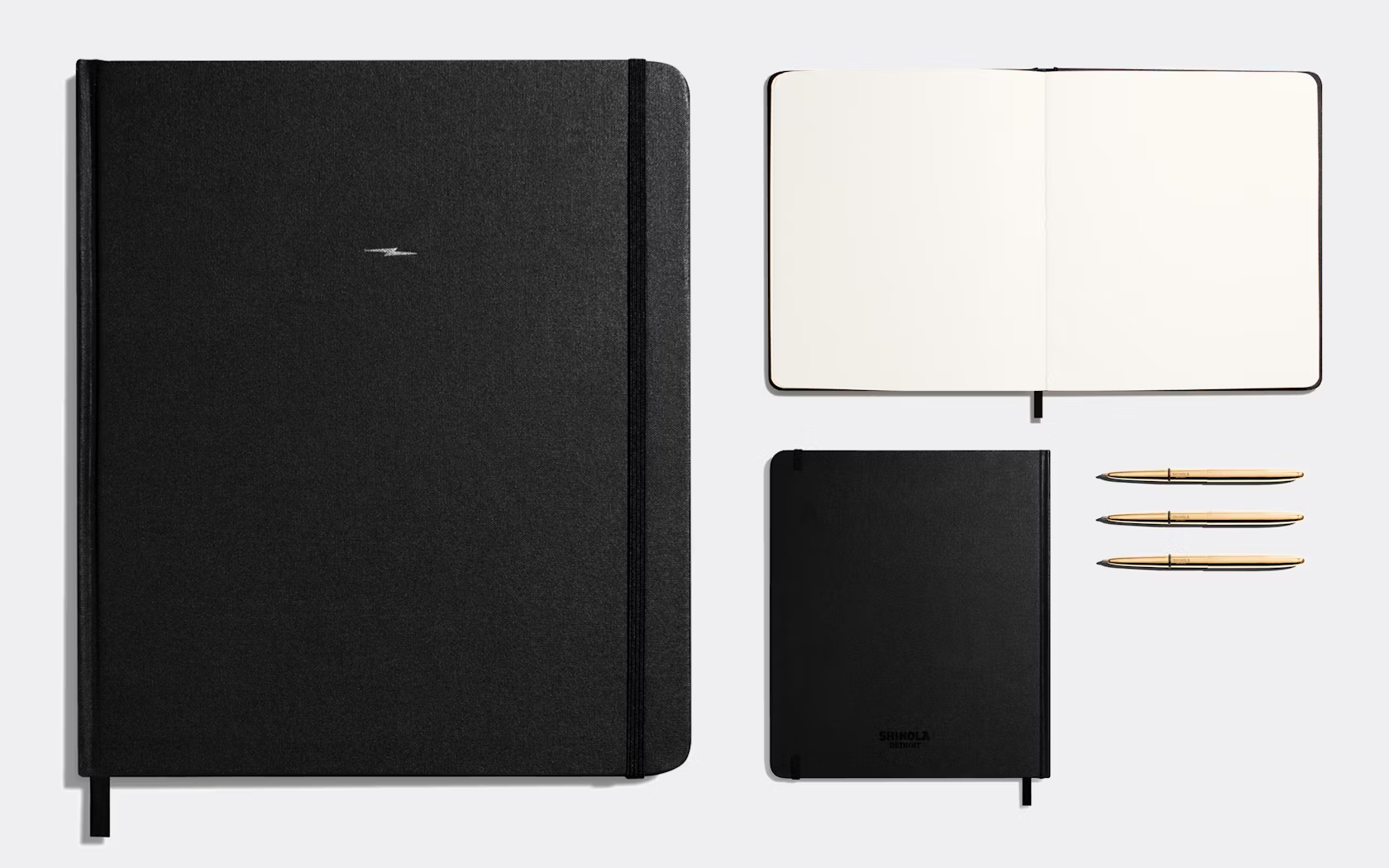
Images via Shinola
Hard Linen Sketchbook by Shinola
A beautiful sketchbook from a beautiful company, handcrafted in Detroit, this high-quality linen sketchbook features 112 pages of 100-pound-weight, US-sourced paper with an elastic closure and expandable inner pocket. At 8”, it is wider than most sketchbooks, so don’t worry about running out of room. Its paper takes everything from charcoal to pastels charcoal, pastels and any semidry mediums.
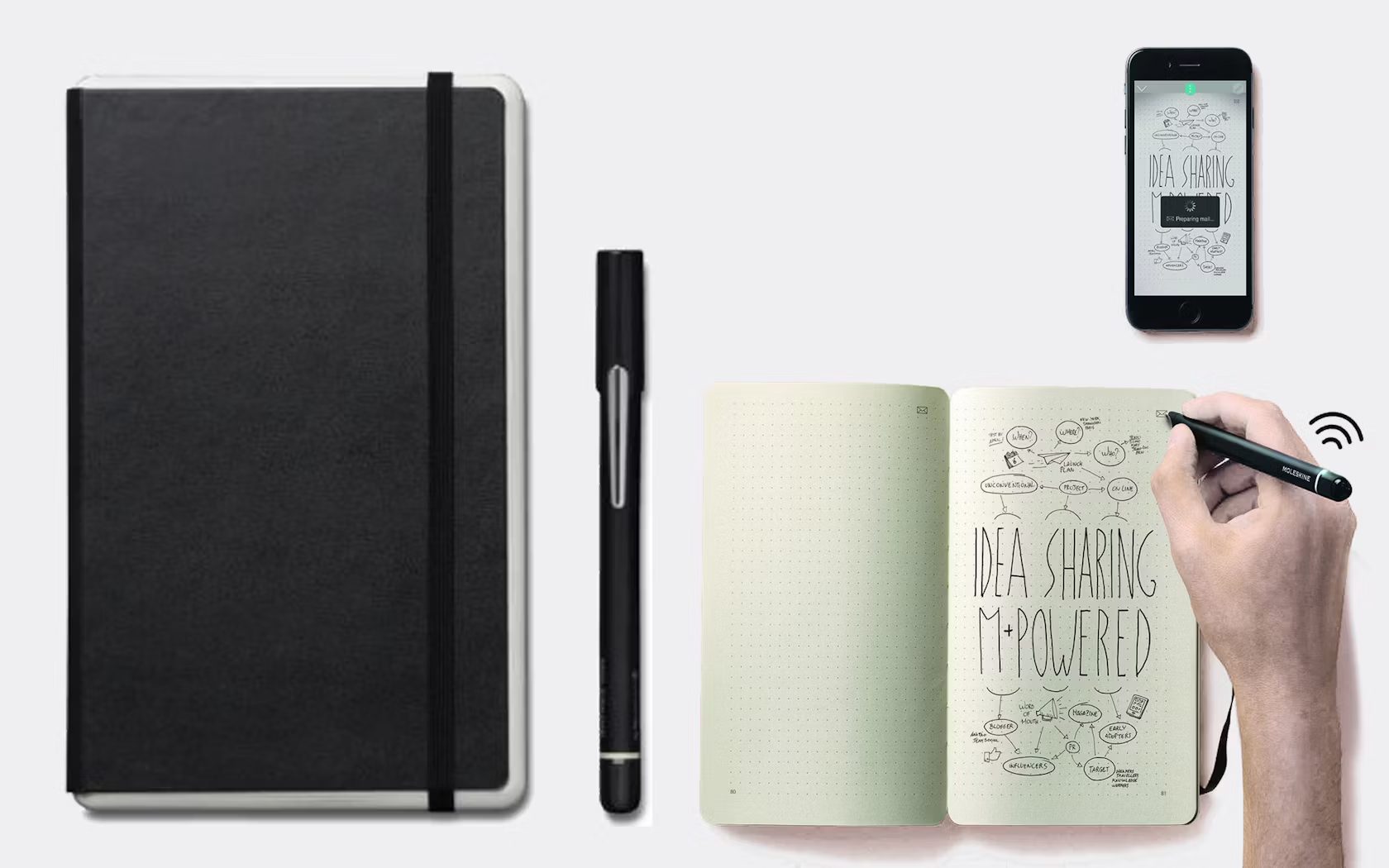
Images via Modern Hype and Barnes and Noble
Smart Writing Set by Moleskine
The elegant classic: tried and true, high-quality journals. This Italian company offers a suite of various notebooks with a range of papers, sizes and options between hard and softcover. Love the feel of pen on paper but need to digitize the drawings? The Moleskine Smart Writing Set uses a Livescribe pen to blur the line between analog and digital. It looks and feels just like a plain Moleskine but backs up your notes to the cloud while you write. Read our full story on this clever little sketchbook here.
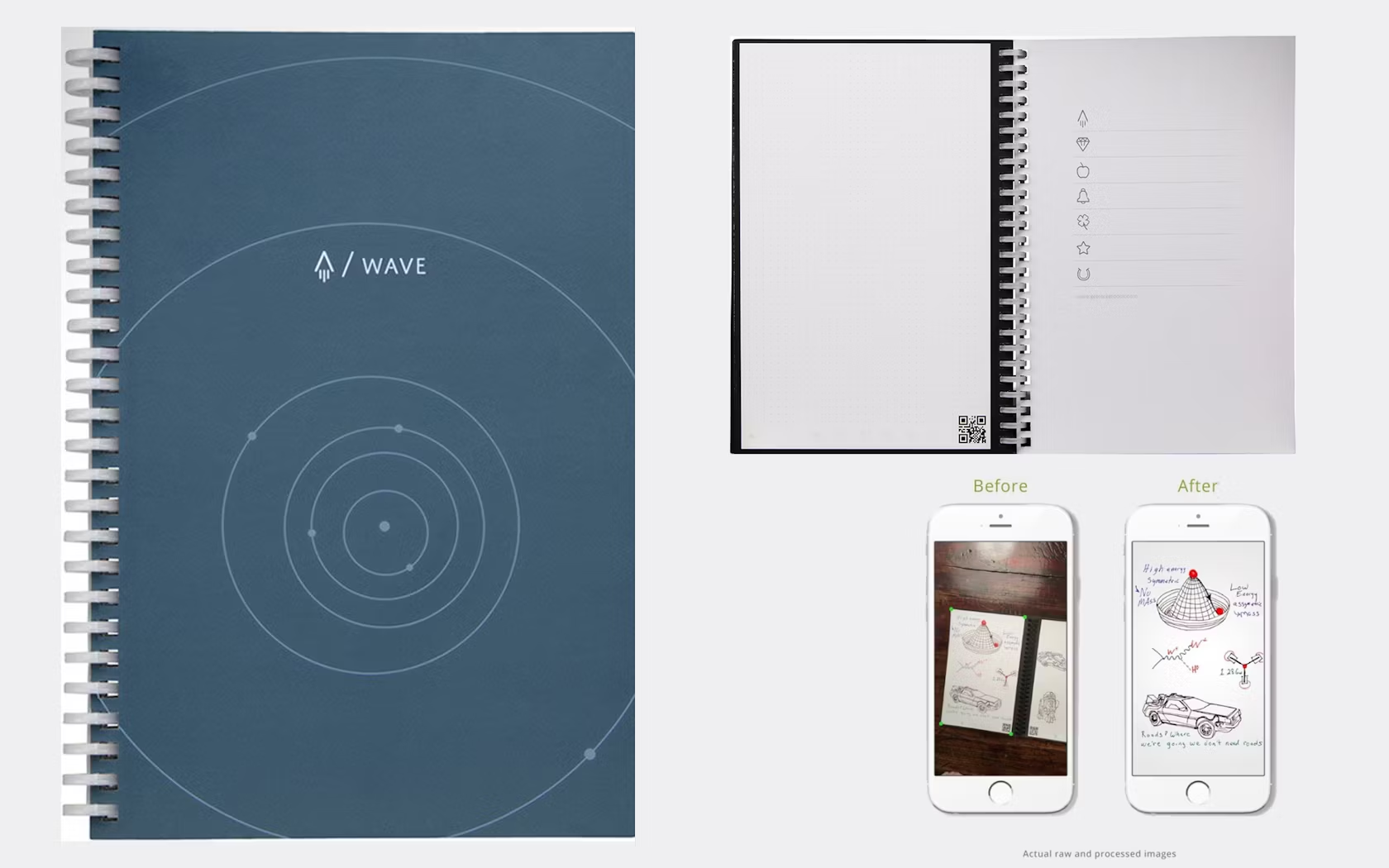
Images via Gear Hungry and Indiegogo
Rocketbook Wave by Rocket Innovations
Never buy a notebook again. After 30 seconds in the microwave, this reusable notebook becomes an entirely blank slate. Seriously. There are plenty of reasons you wouldn’t want to hold onto your sketches: Maybe you’ve got something secret in there, you live in one of these and just don’t have the space, or you just refuse to be overly precious about your notes. In case you do want to save your notes, the Rocketbook Wave has an app that allows you to snap and save your notebook pages to the cloud.
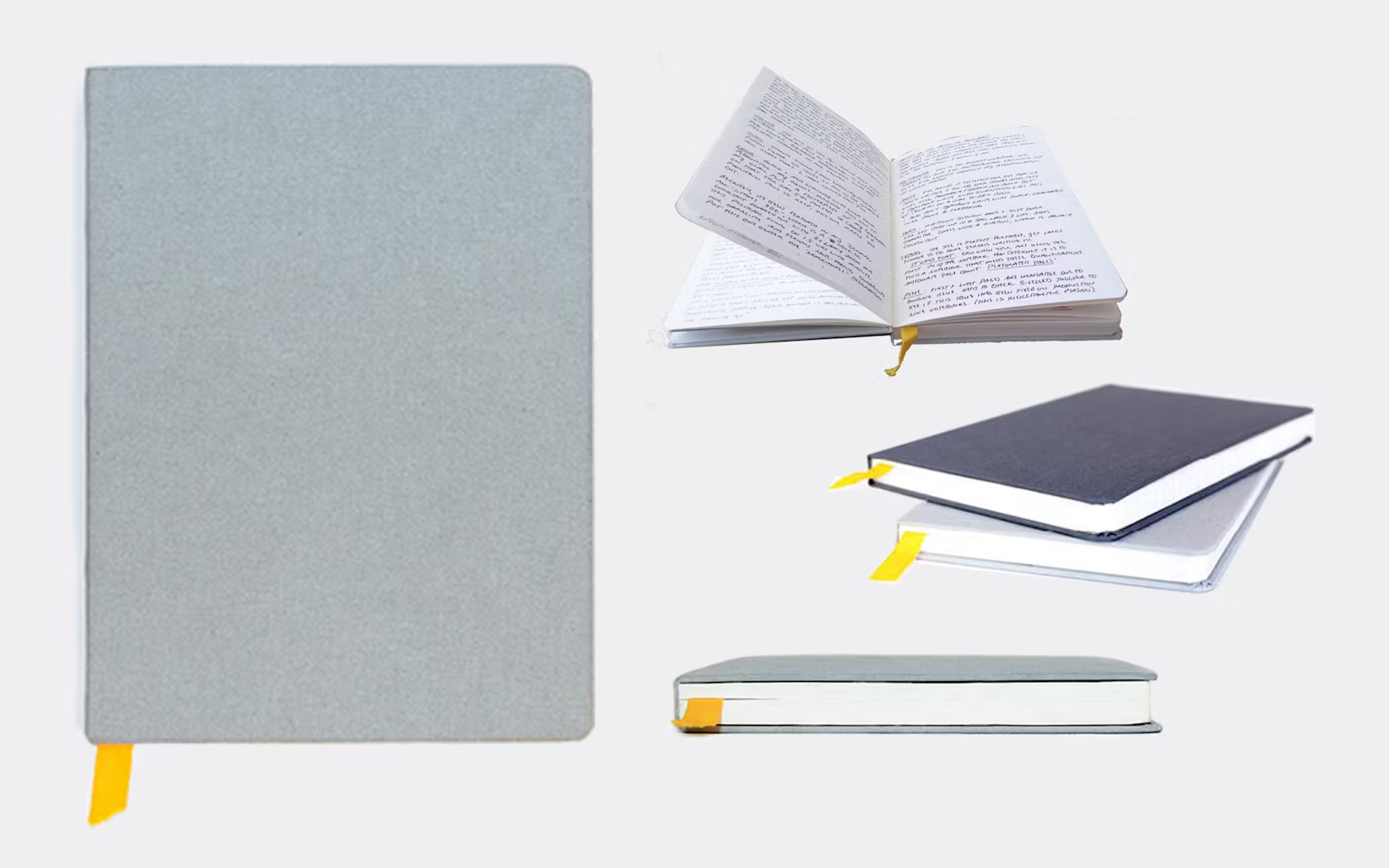
Images via Gentleman Stationer and Baron Fig
The Confident Notebook by Baron Fig
The fussiest notebook on the list. Designed based on the responses of an audience of designers who were asked what they really wanted in a notebook, the Baron Fig Confident Notebook comes in two shades of gray with a quirky yellow cloth bookmark. Each cloth-bound volume contains 192 pages with three types of paper: Blank, ruled and dot grid, all of which take graphite very well. 12 of the pages at the end of the book are perforated. It prides itself on ease of use through lay-flat design and slightly wider width than Moleskines. A fan of softcover? Check out Baron Fig’s Vanguard instead.
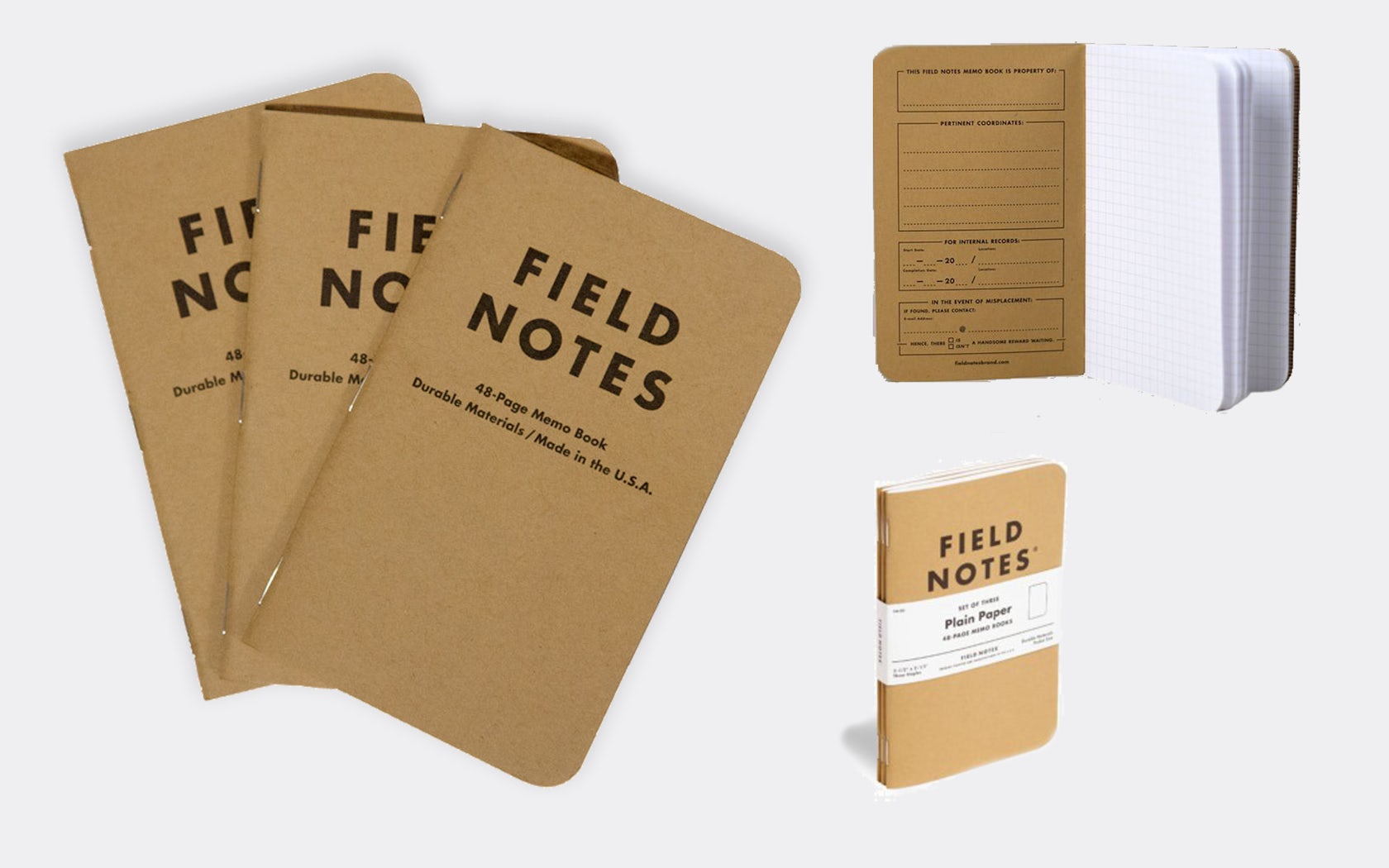
Images via Field Notes and Pinterest
An unassuming icon, US notebook manufacturer Field Notes produces a small, flexible 48-page memo book that comes in packs of three with either graph, ruled or plain paper. In an interview with FastCo, Max Temkin, the Designer for Cards Against Humanity, noted: “I like Field Notes because it is totally fungible. I never have to think twice about writing in my Field Notes or even ripping a page out to share with someone. In the past, when I’ve used Moleskines or other fancy notebooks, I’ve often questioned whether something was worth writing down or not: ‘Is this thought really good enough to go in the Moleskine?’ That’s not what you want if you’re trying to capture ideas quickly.”
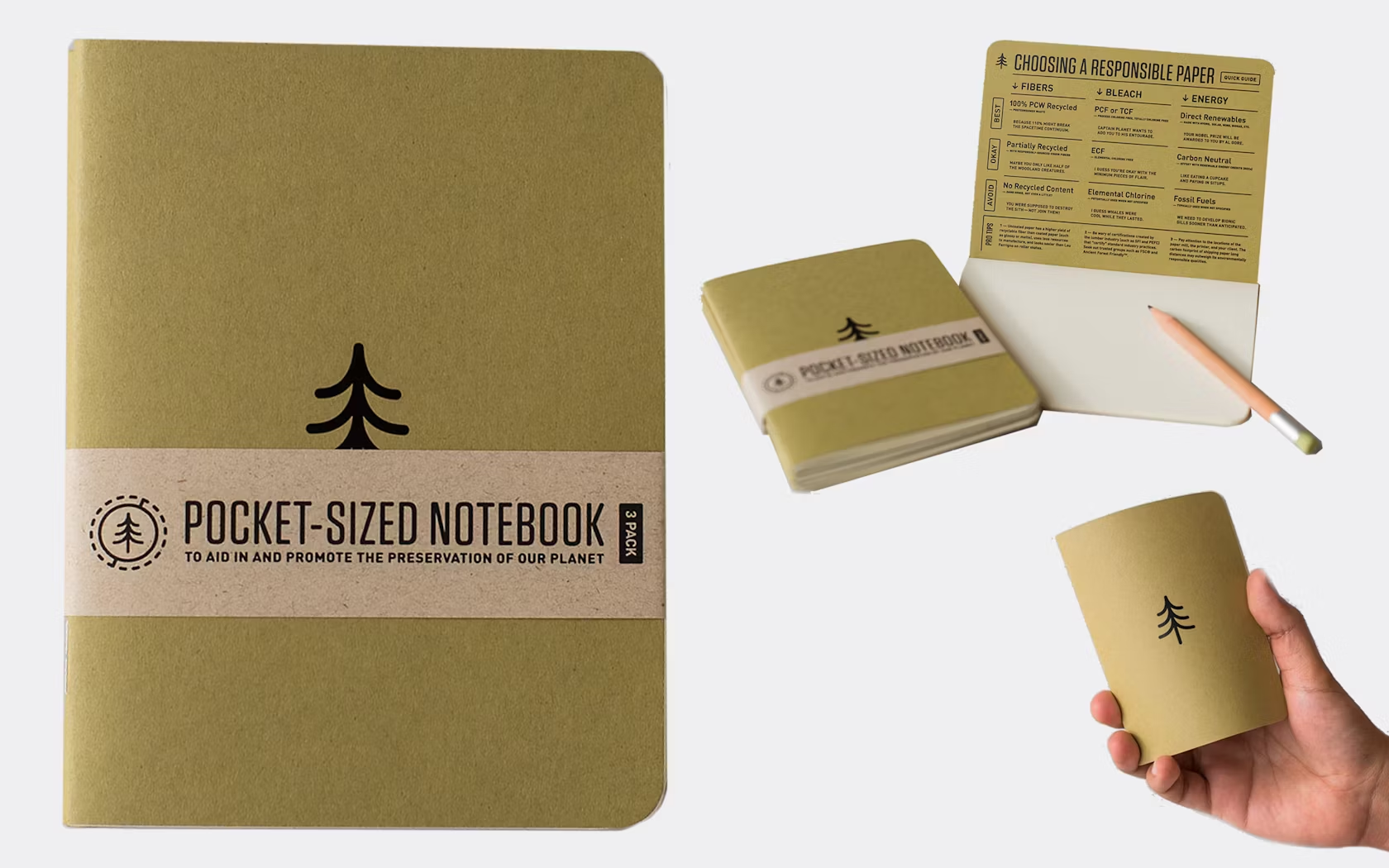
Images via Cast Iron Design
Eco-Friendly Notebook by Cast Iron Design
For those of you who like to be eco-friendly and keep a splash of color on your desk, check out this environmentally responsible mini notebook, a green (literally and figuratively) sibling to Field Notes. At the same price as its competitor for a pack of three, it promises truly high-grade (Mohawk Loop-Smooth) paper, with a dot grid.
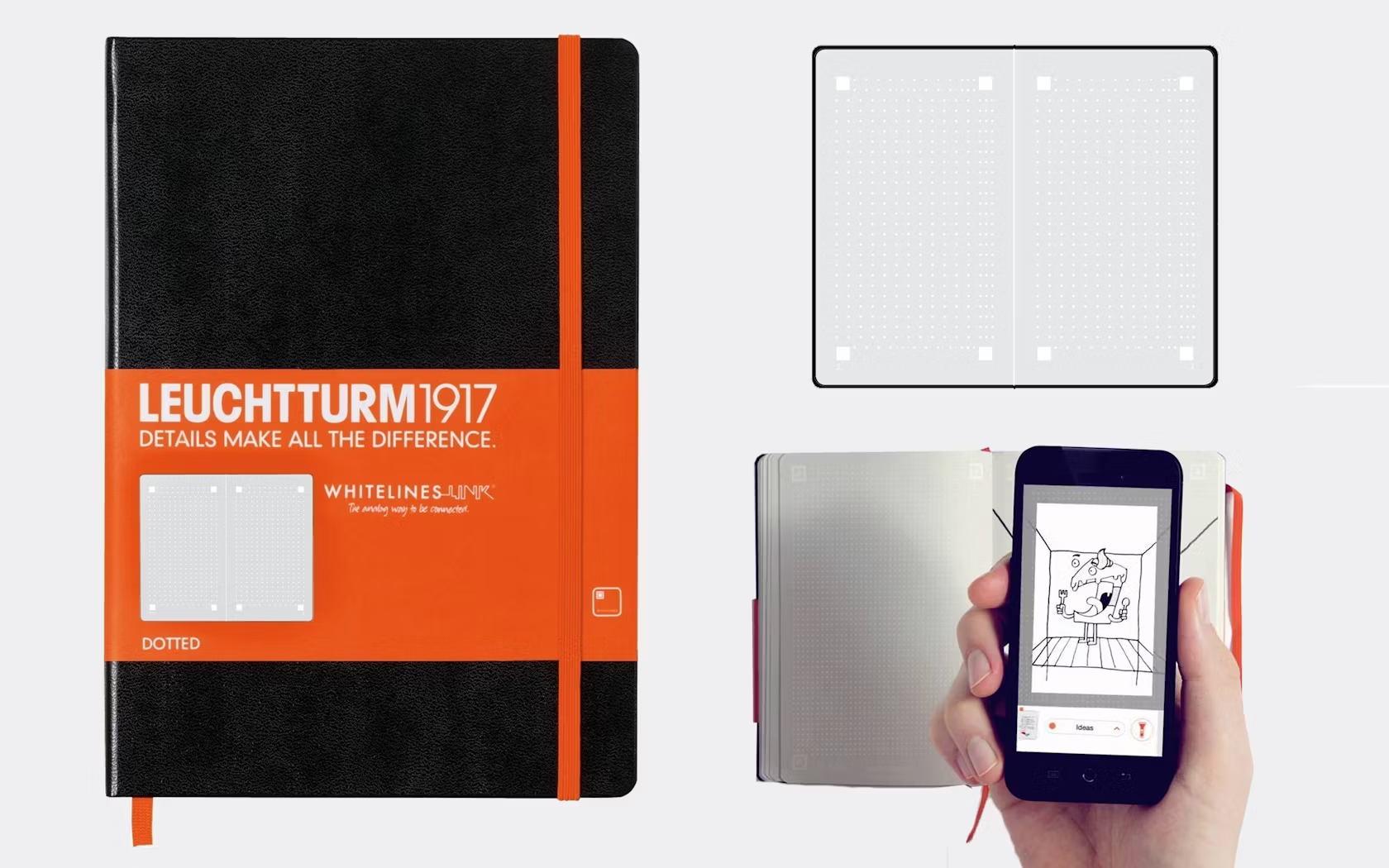
Photographs via YouTube and John Laudun via Flickr
Leuchtturm1917 and Whitelines Link Notebook by Whitelines and Leuchtturm1917
This Swedish company, Whitelines, subverts all expectations through its use of white ink on light gray paper. Premised on the idea that black lines on paper distract, this company is putting out a product that is incredibly designer friendly. The first is Whitelines Link: “the analog way to be connected.” A precursor to the Evernote-Moleskine collaboration, snap and save pictures of your pages with the click of a button on the Whitelines smartphone app. You even direct where they go into apps like Evernote by checking off a box on the bottom-left of the page. Whitelines collaborated with German notebook company, Leuchtturm1917, whose motto is “Details Make the Difference,” to make a truly functional and beautiful product. Check out Leuchtturm1917 and Whitelines Link in action:
Whitelines also produces a memo-style A4 isometric graph notepad, a great tool for architects.
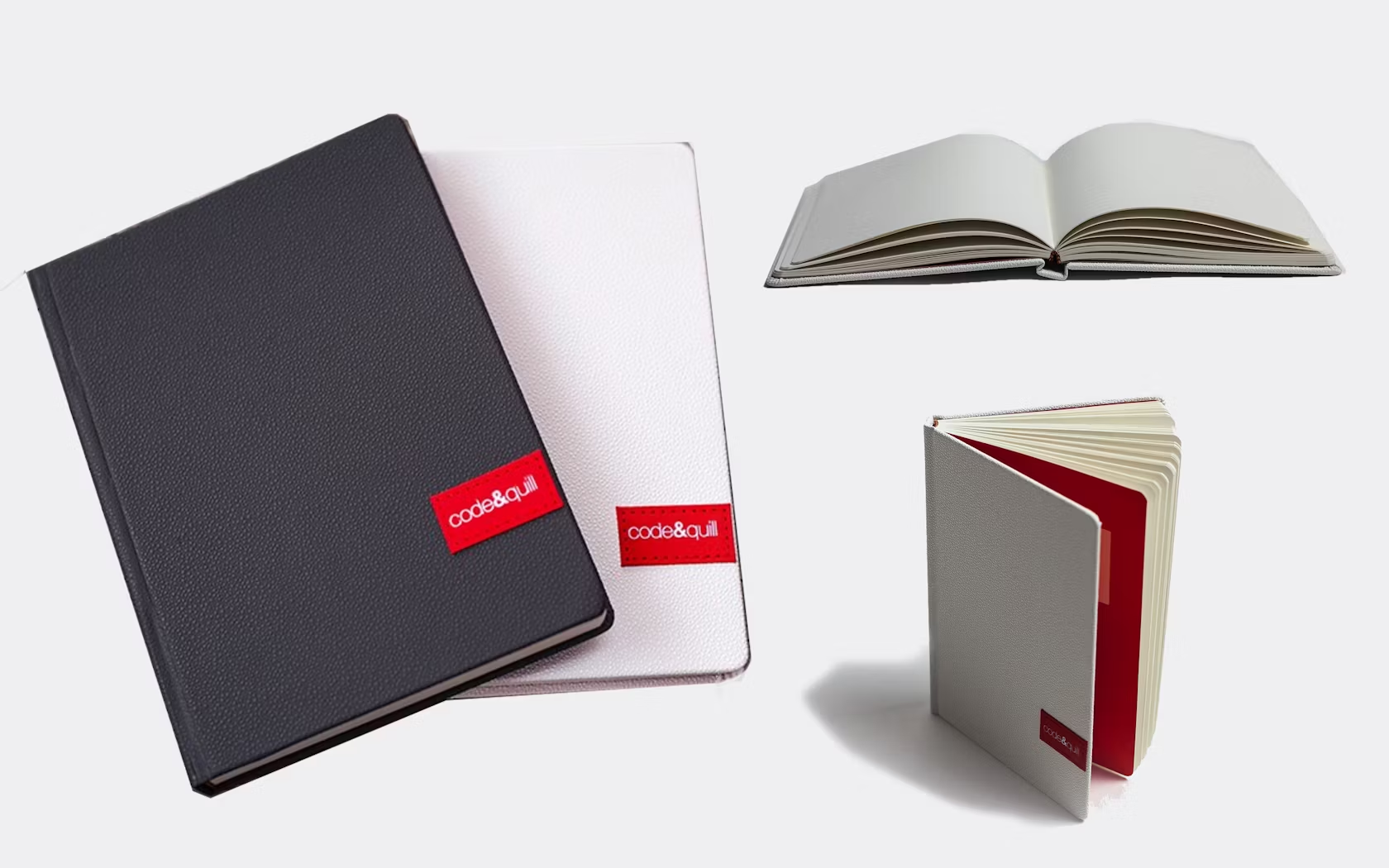
Images via Code and Quill and Ed Jelley
Origin Notebook by Code and Quill
These notebooks offer a unique layout: Each spread features a dot grid on the left and an indentation rule on the right. The right side is great for meticulous note-taking, list-making and, even, code. If your sketches resemble Frank Gehry’s flowing scribbles, this notebook might not be the one for you, but for lovers of neatness and order, Code & Quill’s 192 pages of high-quality thick stock paper and lay-flat design is for you.
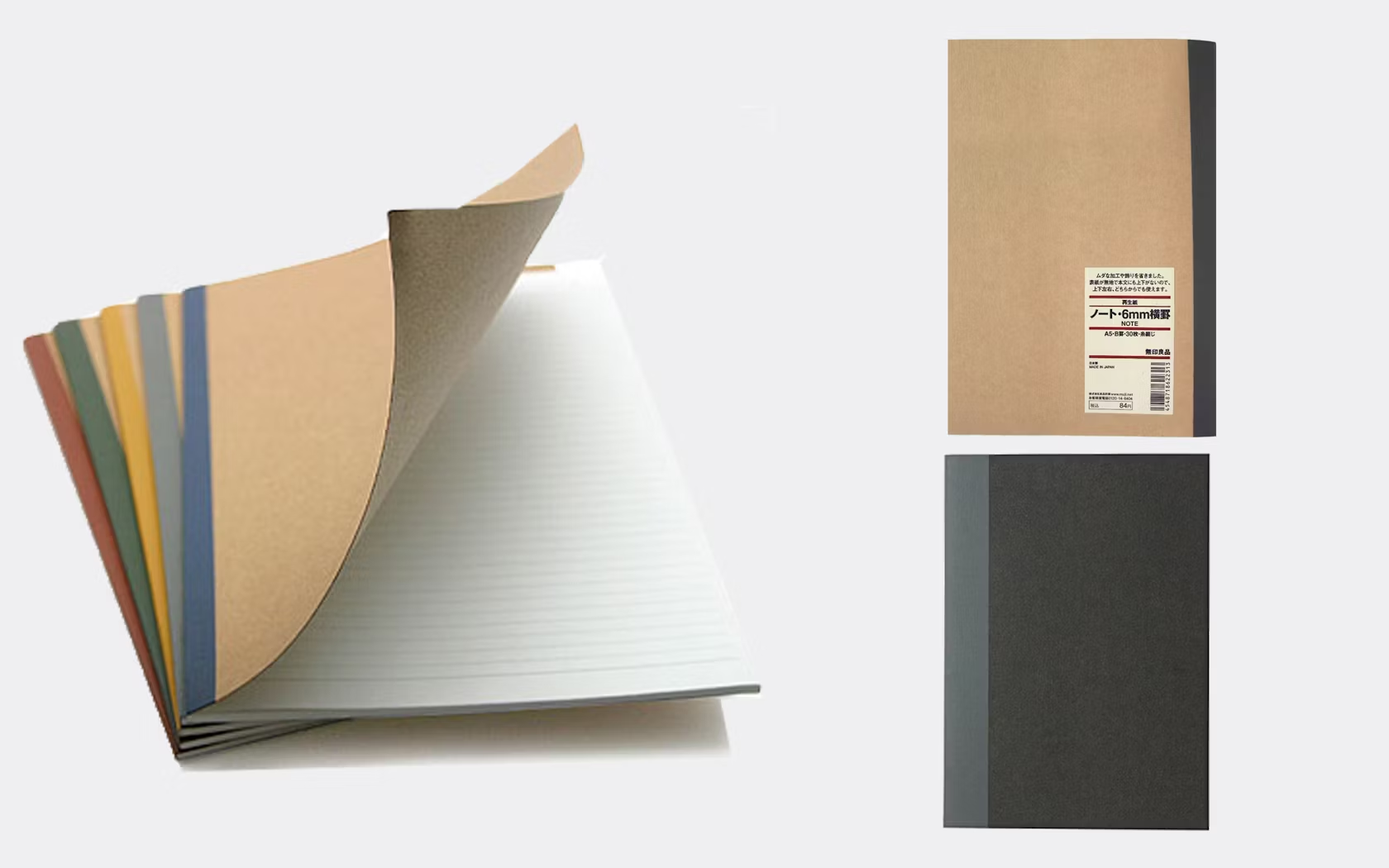
Images via John Saddington and MUJI
Affordable notebooks featuring a low-profile, minimal Japanese design. Their extensive range of products — proportioned at B6 or A4 — are at an excellent price point. The notebooks come with lined, plain or dotted/graph paper. We use them here at Architizer.
Architizer is building tech tools to help power your practice: Click here to sign up now. Are you a manufacturer looking to connect with architects? Click here.
Top image via Code and Quill
